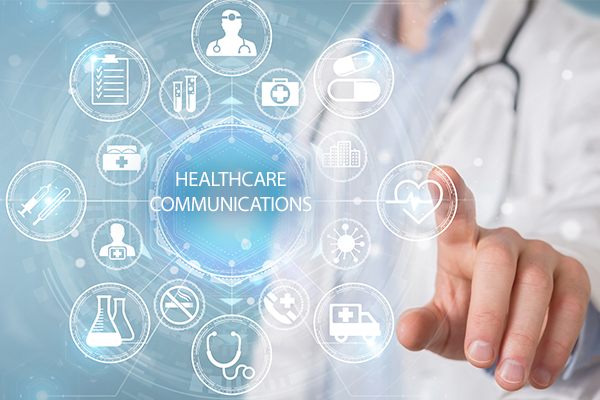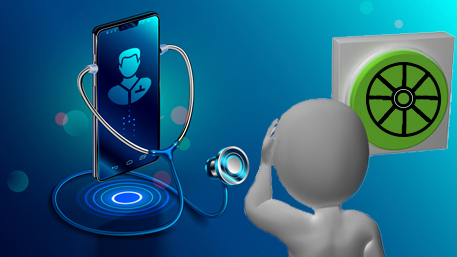Last updated on April 10th, 2025 at 08:48 pm
Introduction
In a controversial step, the Trump administration’s officials ordered the health agencies to stop communication with the public and the press. This decision created widespread concern among health experts, government officials, and public. Openness in health communication is necessary, especially during the crisis time, and any restriction can have serious consequences. This article examines the causes behind the stagnation, its impact on public health, and extensive implications for government and freedom of information.
Background on Health Agency Communications

Health agencies such as Disease Control and Prevention Center (CDC), Food and Drug Administration (FDA) and the National Institute of Health (NIH) play an important role in broadcasting medical and public health information. Their communication effort ensures that the public is informed of health guidelines, disease outbreaks and vaccine development.
Historically, these agencies have worked with a degree of freedom to maintain credibility and trust in scientific information. However, political intervention in the communication strategies his concern about the politicization of health information and its possible impact on public safety.
Decision to prohibit communication
During the Trump administration, the authorities imposed restrictions on health agencies and limited their ability to communicate with the media, MPs, and public. These restrictions included:
- Banning officials from speaking to reporters without prior approval.
- Delay or change reports related to public health problems.
- Checking messages around main themes such as COVID-19, climate change, and reproductive health.
- Limiting access to agency research and data.
The administration justified these tasks and said the need to maintain the message and prevent misinformation. Critics, however, claimed that the feature suppressed scientific data and created an atmosphere of privacy.
The Impact on Public Health

The decision to pause health agency communications had several significant consequences:
1. Delayed Public Health Warnings
With the health authorities unable to communicate independently, the warnings of new health hazards or fell into water fell. For example, during the COVID-19 epidemic, delay helped to issue clear guidance on mask use and social deformity to confusion and misinformation.
2. Anatomy
Public trust is important in health agencies for effective public health reaction. Limitations in communication cast doubt on the credibility of official statements and promoted the principles of conspiracy and misinformation.
3. Interference in Scientific Research
By controlling messaging, the administration risked suppressing critical research findings. Within agencies, researchers met pressure to change reports or to avoid discussing politically sensitive topics, causing concern about the integrity of health data.
4. Political influence on health policy
Health policy should be directed by science instead of political agenda. However, sanctions against communication suggested that political decisions were influenced by political views rather than the requirements for public health.
Public and Expert Reactions
The decision to pause communications faced strong backlash from health experts, media organizations, and members of Congress. Key responses included:
- Health experts say: Researchers and public health officials expressed concern about the long-term results of political intervention in the health report. Many former health agencies emphasized the importance of independent and transparent communication.
- Media Pushback: Journalists criticized the administration for limiting access to important health information, claiming that openness is necessary for public safety.
- Congress investigation: MPS asked for an investigation into the Border for Political Influence on Health Agencies and demanded more responsibility.
Legal and moral views
- Limitation of the health agency’s communication raises legal and moral questions:
- Questions from the first change: The government’s ability to control scientific communication stands out with freedom of speech. Many experts claimed that limiting information on public health led to violations of openness and responsibilities.
Health officials for ethical responsibility:
Researchers and health professionals have a moral obligation to provide accurate and timely information to the public regardless of political views.
Legislative inspection: Congress has a role in ensuring that health agencies work freely and are not subject to unfair political influence.
Learned results and lessons with a long time

The limitations of Trump administration on communication of health agencies have long implications for public health policy and governance. Key lessons include:
- The need for health agencies from independent health agencies should be able to communicate freely without political intervention in order to maintain public trust and reliability.
- The importance of open communication ensures that the audience gets accurate and timely health information, which is important in emergencies such as epidemic.
- Strengthening legal security for health communication should take security measures for future administration to prevent political intervention in the Health Agency’s report.
- Public awareness and spokesman play an important role in keeping governments responsible for their decisions related to public and media surveys.
Conclusion
The Trump administration’s decision to prevent communication from health agencies was a controversial step with significant consequences for public health, openness and trust in public institutions. While the rationale was intended to control the message, the limitations eventually reduced the reliability of health agencies and prevented their ability to provide important information to the public. In the future, ensure that health agencies remain independent and transparent, it will be necessary in the protection of public health and democracy.









